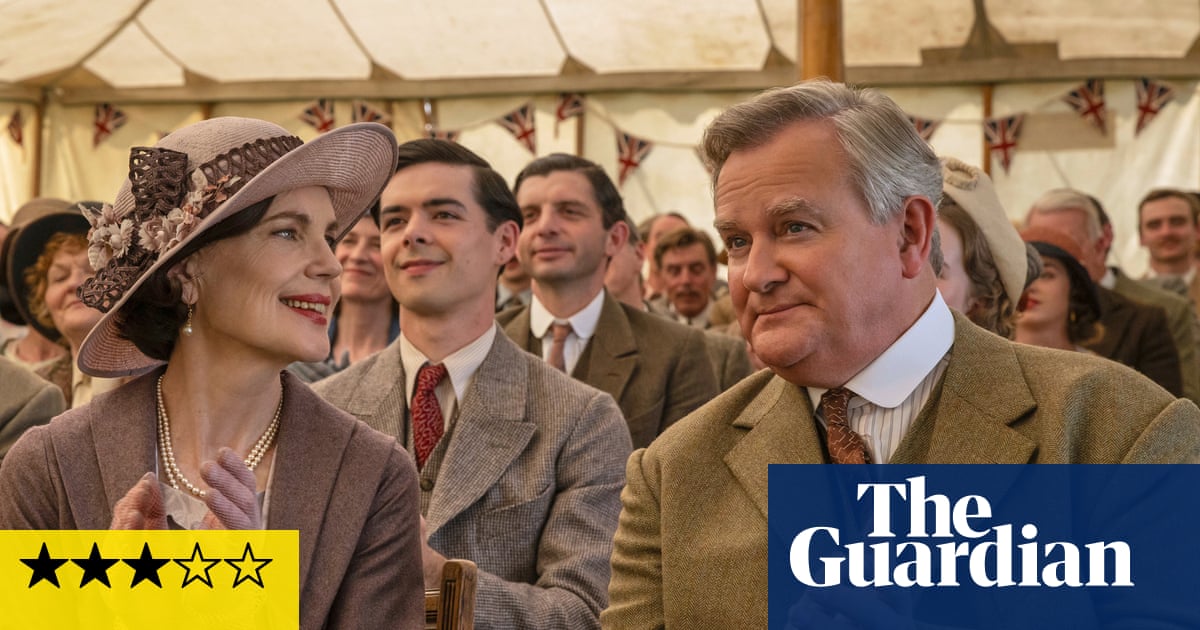
"Grand finale? Oh please. Let's get real; there is no reason why this particular brand of gibbering, wittering, blithering and surreally enjoyable nonsense shouldn't go on for ever, like Frank Sinatra's farewell tour or shortbread manufacture in the Scottish Highlands. Both of the previous Downton films had a sentimental last-hurrah message that didn't preclude another one dropping off the production line."
"The last but one film finished on a funereal drone shot of Downton Abbey at sunset and the one after that was subtitled A New Era but this one, it seems, has taken us back to the very end of the old era, inviting us to swoon loyally at the passing of something special and yet also at the same time doff our caps at the bluebloods' insouciant gift for survival."
"The scene is London in 1930 and Lady Mary (Michelle Dockery) is at a grand society occasion with her parents, the Earl of Grantham (Hugh Bonneville) and the Countess of Grantham (Elizabeth McGovern), when the rumour runs round the assembled company that gasp! Lady Mary is technically a divorced woman and so has to be expelled from the party before the royals turn up."
The film returns to the 1930s Downton world with a playful, surreal opening that borders on dadaist absurdity. The narrative juxtaposes sentimental, last-hurrah imagery with cheeky comic set pieces, such as a society shock over Lady Mary's technical divorce. The production recycles and riffs on earlier country-house ideas and celebrity cameos, invoking Noel Coward in a manner reminiscent of prior screenplays. The tone alternates between affectionate nostalgia and blatant tongue-in-cheek craziness, celebrating aristocratic resilience while leaving clear space for more sequels and variations on the familiar Downton formula.
Read at www.theguardian.com
Unable to calculate read time
Collection
[
|
...
]